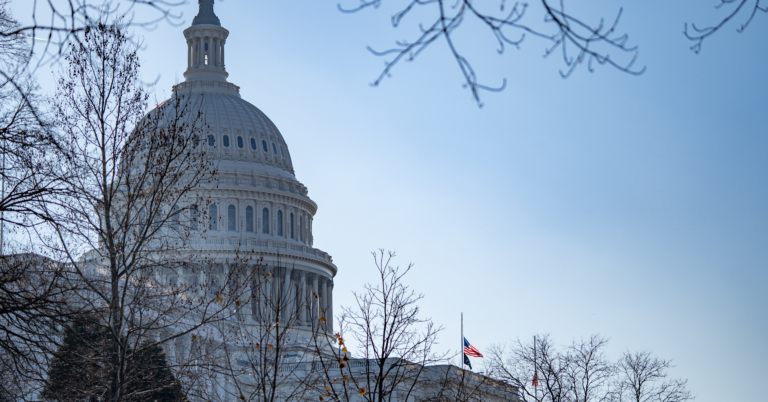
Senator Jon Husted (R-OH) introduced an exceptionally well-crafted proposal for a balanced budget amendment (BBA) to the U.S. Constitution last week. Representative Nathaniel Moran (R-TX) proposed a similar resolution.
America needs a well-crafted BBA
A rising federal debt burden already undermines opportunity for hardworking Americans. Surging borrowing triggered the highest inflation in 40 years in 2021 and pushed up interest rates. Federal debt competing with private investment crowds out productivity gains that would have otherwise made us more prosperous.
The federal debt burden makes the affordability crisis worse. If, or rather when, a sovereign debt crisis appears, the economic, security, and political fallout could be devastating. States and countries usually adopt binding budget rules in their crisis recovery efforts, but Congress still has a chance to get ahead of that pain.
Beyond helping control the debt, a BBA can also prod Congress to remake itself as a strong, independent legislative powerhouse. The budget process is long overdue for modernization that unleashes the productive powers of members of Congress to solve problems while driving up the quality, efficiency, and value of the federal government.
Explaining the Principles-based Balanced Budget Amendment
This Principles-based BBA reflects existing constitutional language: it proposes eternal principles as a foundation for Congress to develop evolving statutory details as the country’s needs change. It is simple and concise: 1) balance the budget, 2) except during emergencies, and 3) have a reasonable glide path to reach balance.
Section 1. Expenditures and receipts shall be balanced, which may occur over more than 1 year. Expenditures shall include all expenditures of the United States except those for payment of debt, and receipts shall include all receipts of the United States except those derived from borrowing. Congress shall achieve balance within 10 years following the date of the ratification of this article.
Section 2. For emergency situations, Congress may, for limited times, authorize expenditures exceeding those allowable under section 1, if two-thirds of the House of Representatives and the Senate agree to pass the bill. Debts incurred from such expenditures shall be paid as soon as practicable.
Balance: Balancing over the medium term, as the Responsible Budget Target Act proposes, could connect spending and revenue trends to support stable, predictable, and holistic budgeting. It combines near-term flexibility with longer-term prudence to promote sound budgeting in several ways. The BBA’s language allows – but does not require – this approach, yet state and foreign experiences show it to be a best practice. In addition, Congress could choose primary balance, which excludes interest expenses and requires about half as much deficit reduction as full balance.
Emergencies: Congress needs a way to respond to emergencies without providing an easily misused loophole. The BBA’s two-thirds requirement for both houses and an expectation to repay emergency borrowing strikes this balance. It is also consistent with the Constitution’s standard legislative supermajority, which applies to veto overrides and other unusual situations.
Glide path: The federal government’s primary deficit is $1 trillion and growing. The political agreements needed to close the gap will take time to enact and phase in. The BBA gives Congress a full decade after ratification to reach balance, however defined, after ratification in the states.
No quicksand: Concerning BBAs provisions are not part of the Husted/Moran proposal.
Conclusion
A well-crafted BBA would be a tool of sound governance. It would promote responsible budgeting and support emergency response when needed. It would also help Congress reinvent itself to better manage the federal government. Senator Husted and Representative Moran’s Principles-based Balanced Budget Amendment could help Congress help America succeed, and all members of Congress should support it.
© 2026 AMERICANS FOR PROSPERITY. ALL RIGHTS RESERVED. | PRIVACY POLICY
Receive email alerts to learn how to get involved